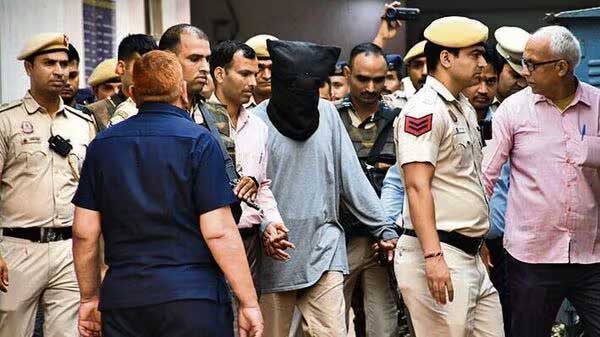By The Sampadak Express
In a crucial development in the 26/11 Mumbai terror attacks case, the National Investigation Agency (NIA) on Saturday collected the voice and handwriting samples of Tahawwur Rana, a key accused in the 2008 carnage that claimed 166 lives.
Rana, recently extradited from the United States, was brought under tight security to a Delhi court for the sample collection, conducted in compliance with a judicial order. The procedure was overseen by Judicial Magistrate First Class Vaibhav Kumar.
According to Rana’s court-appointed legal counsel, Advocate Piyush Sachdev, the 64-year-old Canadian businessman “fully complied with the court’s directive” to provide both voice and handwriting samples. As part of the process, Rana was made to write alphabets and numerals, while his voice was recorded for forensic examination.
Court-Ordered Collection and Custody Extension
The sample collection follows a recent court order issued by Special NIA Judge Chander Jit Singh on April 30, granting the agency permission to obtain Rana’s samples. This came just two days after the court extended Rana’s NIA custody by 12 days.
The NIA had sought the extension citing Rana’s non-cooperation during interrogation. Senior investigators stated that despite being confronted with significant evidence, Rana remained evasive. The agency stressed that additional custodial time is vital to extract crucial information linked to the broader conspiracy behind the 2008 attacks.
Rana’s Alleged Role in the 26/11 Attacks
Rana, of Pakistani origin, is accused of aiding David Coleman Headley one of the masterminds of the 26/11 attacks by providing logistical and financial support. Headley, a US citizen and operative of Lashkar-e-Taiba (LeT), carried out surveillance missions that helped plan the attack.
The 2008 attacks targeted key locations across Mumbai, including the Taj Mahal Palace Hotel, the Oberoi Trident, Chhatrapati Shivaji Terminus, and the Jewish center Nariman House. Over 300 people were injured in addition to the 166 fatalities.
After years of legal proceedings, the US Supreme Court recently rejected Rana’s plea against extradition, clearing the way for his transfer to India on April 4.
Continuing Investigation
With Rana now in Indian custody, the NIA is intensifying its probe to unravel the full extent of the 26/11 conspiracy. Investigators are keen to determine Rana’s exact role in facilitating the attacks, especially his alleged involvement in coordinating logistics for the LeT operatives.
While Rana’s defence argues that further custody is unwarranted, the NIA insists more time is essential to uncover critical leads. The agency, represented by Senior Advocate Dayan Krishnan and Special Public Prosecutor Narender Mann, has reiterated its commitment to securing justice for the victims of one of India’s worst terror attacks.
The case continues to serve as a powerful reminder of India’s determination to hold every conspirator of 26/11 accountable.






